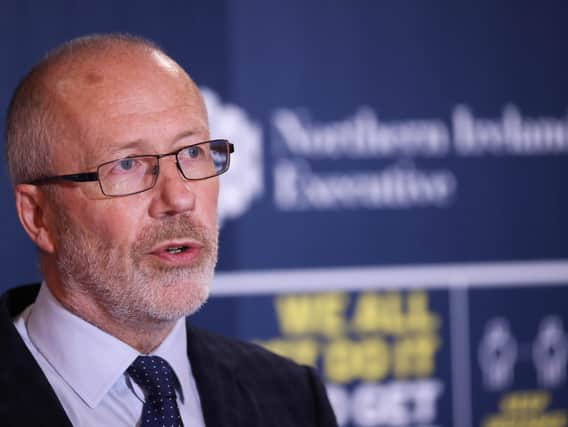NI chief scientific adviser loses High Court bid to block disciplinary probe


Claire Roberts died from hyponatraemia, which is linked to a shortage of sodium in the blood, at the Royal Hospital for Sick Children in Belfast on October 21 1996, shortly after she was admitted to hospital following several episodes of vomiting.
Professor Ian Young was asked to review the case in 2004 and provide an assessment on whether hyponatraemia contributed to Claire’s death.
Advertisement
Hide AdAdvertisement
Hide AdA public inquiry investigating the deaths of Claire and four other children from the condition found Prof Young did not inform Claire’s parents – Alan and Jennifer Roberts – about failings in her care and gave “misleading” evidence to the original inquest into her death.
In a January 2018 report, inquiry chairman Mr Justice O’Hara also said Prof Young had “shifted from his initial independent role … to one of protecting the hospital and its doctors”.
A new inquest, which was ordered following the inquiry, concluded in June 2019 that Claire’s death “was caused by the treatment that she received in hospital”.
Prof Young referred himself to the General Medical Council (GMC) shortly after the inquiry’s report was published and the regulator initially decided not to waive its usual five-year time limit for fitness to practise proceedings.
Advertisement
Hide AdAdvertisement
Hide AdBut the GMC reversed its decision in January 2020, finding it was “in the public interest” for the allegations against Prof Young to proceed to an investigation.
At a High Court hearing in January, Prof Young’s barrister Robert Kellar QC said the original decision that it was not in the public interest to waive the statutory time limit on investigations was “lawful and rational” and the reversal of that decision was “inconsistent and unreasonable”.
Mr Kellar also argued the second decision by the GMC “took into account irrelevant considerations and unfairly mischaracterised Prof Young’s conduct”.
But, in a ruling on Tuesday, Mr Justice Holgate dismissed Prof Young’s challenge.
Advertisement
Hide AdAdvertisement
Hide AdThe judge said that the GMC’s original decision was “wholly unsustainable” and had failed “to appreciate key elements of the inquiry’s findings going both to the seriousness of the allegations and the public interest issues involved”.
Mr Justice Holgate added that the GMC was right to conclude that there were “material flaws” in the original decision.